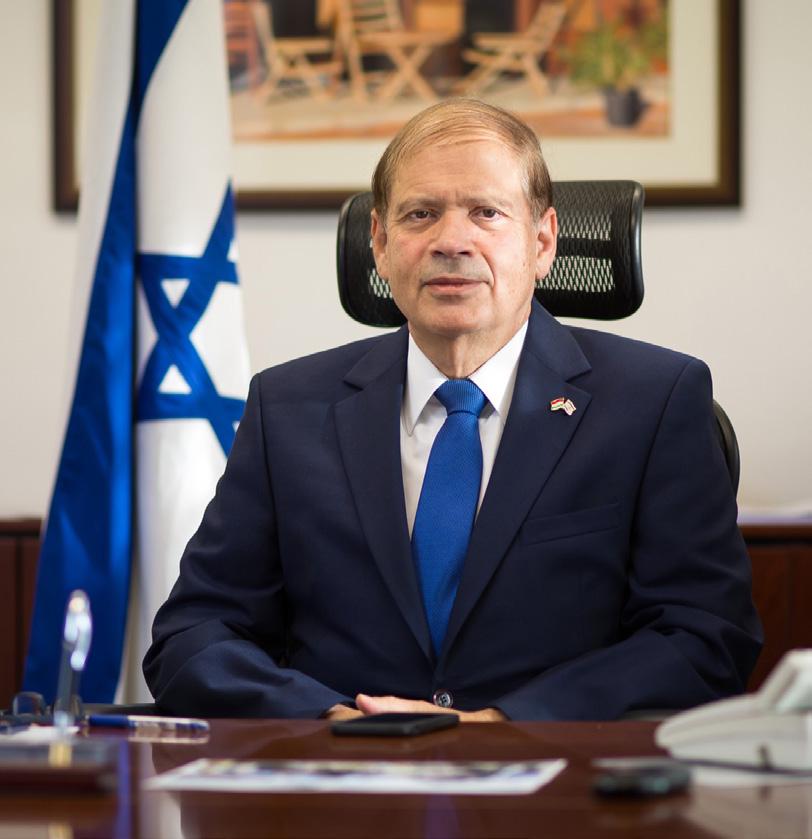FRENCH INTERESTS IN THE EASTERN MEDITERRANEAN Fanni Korpics
INTRODUCTION France has long been interested in the Mediterranean, and it is one of the most powerful regional actors in the Mediterranean Basin today. Thanks to its mandates established after World War I, it managed to expand its zone of influence into territories today known as Syria and Lebanon. The country’s foreign policy is based on the principles of the so-called “grandeur” and “gloire,” two concepts that were vividly represented during the first half of French president Emmanuel Macron’s tenure, as he is quite ambitious when it comes to diplomacy. When examining France’s interests in the Eastern Mediterranean, the first country worth looking at is Lebanon, as, having been a former French mandate along with Syria, it keeps maintaining close ties with Paris. France, however, is also working on deepening its relations with the whole of the Eastern Mediterranean, particularly Libya. On the other hand, France’s dominance in the Eastern Mediterranean is challenged by several other actors, such as Italy, Turkey, or Russia—today, the country’s role seems to decline in the Middle East with the latter two emerging as new regional powers. Overall, Macron’s France has two main goals to achieve in the region. First, to strengthen its geopolitical positions, and, second, to involve regional actors in the fight against terrorism. The latter objective prompted France to support the eastern-based military commander Khalifa Haftar in the Second Libyan Civil War instead of the internationally recognised Tripoli-based Government of National Accord (GNA) led by Fayez al-Sarraj as Paris believes general Haftar can contribute to the fight against terrorism in the civil war-torn country.1 France’s main adversary in its fight for geopolitical leadership and natural resources in
the Eastern Mediterranean is the Erdoğan-led Turkey. In reality, there are several issues over which these two countries quarrel. They both want to be the leading power of the Eastern Mediterranean region besides winning the right to exploit oil and gas reserves discovered there. Further tensions unfolded between the two countries when Turkey attacked the Kurds that had fought alongside France in the fight against the Islamic State in the Middle East or when Turkey started a military intervention in Libya despite France’s intentions of leading the international coalition there. Albeit not in the region proper, Macron and Erdoğan also disagreed on whom to support in the Nagorno-Karabakh conflict; while Macron picked the Armenians, Turkey militarily supported the Azerbaijani forces. Furthermore, President Erdoğan openly criticised President Macron for taking a stance against radical Islamist separatism and championing freedom of speech, and, as a consequence, he also called for a boycott against French products, which several other Muslim states joined.2 Last summer, prior to the boycott, new tensions over the dispute between Greece, Cyprus, and Turkey about the exploitation rights of the maritime resources discovered in the Aegean also built up between France and Turkey in the Eastern Mediterranean. France immediately took the side of Greece and Cyprus, trying to convince its fellow EU member states to do the same. President Macron clearly saw the opportunity to take the lead within the EU, as Germany is reluctant to damage EU–Turkey relations for fear of another migration crisis or the further destabilisation of the entire Middle East. The current Eastern Mediterranean situation offers Paris a chance to show that it is a real stakeholder in the region and has an essential role in the security of the Mediterranean in INTERESTS OF EXTERNAL ACTORS
125











